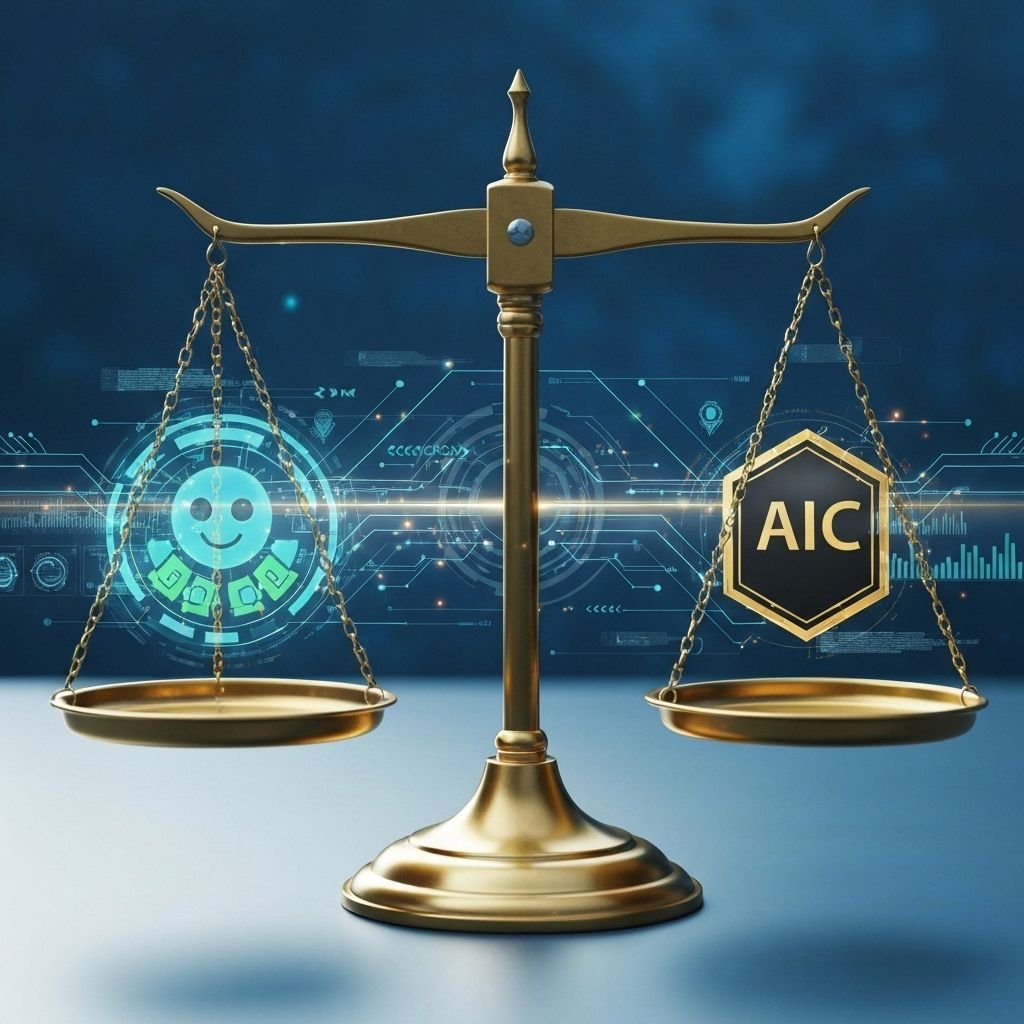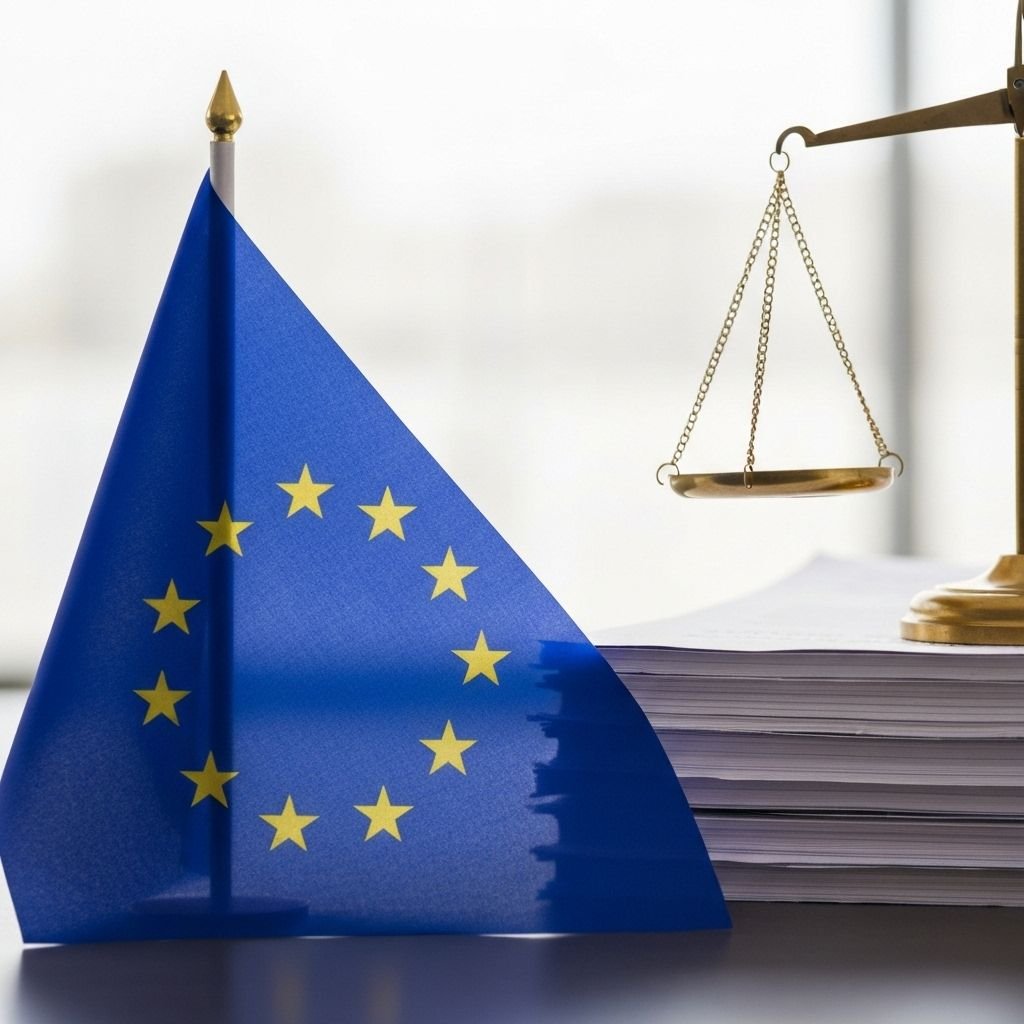The European Union has unanimously passed the world's most comprehensive artificial intelligence regulation framework, establishing unprecedented standards for AI development, deployment, and governance. The AI Act, which took effect on December 1, 2024, represents a landmark achievement in technology policy and is expected to influence AI regulation globally.
Comprehensive Regulatory Framework
The EU AI Act introduces a risk-based approach to AI regulation, categorizing AI systems into four risk levels: minimal, limited, high, and unacceptable risk. Each category has specific requirements and restrictions designed to protect citizens while promoting innovation.
The framework addresses key areas including:
- Fundamental rights protection in AI systems
- Transparency and explainability requirements
- Data governance and quality standards
- Human oversight and intervention capabilities
- Accuracy and robustness testing protocols
- Cybersecurity and system integrity measures
- Bias detection and mitigation strategies
High-Risk AI System Requirements
AI systems classified as high-risk, including those used in healthcare, education, employment, and law enforcement, must meet stringent requirements before deployment. These systems must undergo conformity assessments and maintain detailed documentation throughout their lifecycle.
High-risk AI requirements include:
- Comprehensive risk management systems
- High-quality training data and data governance
- Detailed technical documentation
- Automatic logging and record-keeping
- Transparent operation and user information
- Human oversight capabilities
- Accuracy, robustness, and cybersecurity measures
Prohibited AI Practices
The regulation explicitly bans certain AI applications deemed incompatible with fundamental rights and values. These prohibited practices include social scoring systems, real-time biometric identification in public spaces (with limited exceptions), and AI systems that exploit vulnerabilities.
Commissioner Margrethe Vestager emphasized: "The AI Act ensures that AI serves humanity, not the other way around. We're setting clear boundaries while preserving space for innovation and fundamental rights."
Foundation Model Obligations
Large foundation models, particularly those with significant computational requirements, face specific obligations under the new framework. These include systemic risk evaluation, adversarial testing, and detailed documentation of training processes.
Foundation model requirements encompass:
- Comprehensive model documentation and risk assessment
- Adversarial testing and red-team evaluation
- Systemic risk identification and mitigation
- Energy consumption and environmental impact reporting
- Copyright and intellectual property compliance
- Downstream application monitoring
Innovation and Compliance Balance
The regulation includes provisions to support innovation while ensuring compliance. Regulatory sandboxes allow companies to test AI systems under relaxed regulatory conditions, while standardization efforts provide clear guidance for implementation.
Innovation support measures include:
- Regulatory sandboxes for controlled testing
- SME support programs and technical assistance
- Harmonized standards and best practices
- International cooperation frameworks
- Research and development exemptions
Enforcement and Penalties
The AI Act establishes substantial penalties for non-compliance, with fines reaching up to 7% of global annual turnover for the most serious violations. National competent authorities will oversee enforcement, with coordination through the European AI Office.
Enforcement mechanisms include:
- Market surveillance and compliance monitoring
- Incident reporting and investigation procedures
- Administrative fines and corrective measures
- Product withdrawal and recall procedures
- Cross-border cooperation protocols
Global Impact and Influence
The EU AI Act is expected to have significant global influence, similar to the GDPR's impact on data protection worldwide. Companies operating globally are likely to adopt EU standards as a baseline, creating a "Brussels Effect" for AI regulation.
International implications include:
- Global standard-setting through market influence
- Bilateral cooperation agreements with third countries
- Influence on other jurisdictions' regulatory frameworks
- International standardization body engagement
- Trade agreement integration of AI provisions
Industry Response and Adaptation
Major technology companies have largely welcomed the regulatory clarity while expressing concerns about implementation timelines and technical feasibility. Many organizations have already begun adapting their AI development processes to comply with the new requirements.
Industry adaptation strategies include:
- Compliance program development and implementation
- AI governance framework establishment
- Technical standard adoption and certification
- Legal and regulatory team expansion
- Third-party audit and assessment partnerships
Implementation Timeline
The AI Act follows a phased implementation approach, with different provisions taking effect at various intervals. Prohibited AI practices became immediately effective, while other requirements have implementation periods ranging from 6 months to 36 months.
Key implementation milestones:
- Immediate: Prohibited AI practices ban
- 6 months: General-purpose AI model obligations
- 12 months: AI office establishment and governance structure
- 24 months: High-risk AI system requirements
- 36 months: Full compliance for all provisions
Technical Standards Development
European standardization organizations are working closely with industry to develop harmonized standards that provide presumption of conformity with AI Act requirements. These standards will help companies demonstrate compliance while fostering innovation.
Standardization priorities include:
- Risk management and assessment methodologies
- Data quality and governance standards
- Transparency and explainability frameworks
- Testing and validation procedures
- Human oversight and intervention protocols
AI Literacy and Education
The regulation emphasizes the importance of AI literacy among users and affected persons. Member states are required to promote AI literacy programs and ensure adequate training for relevant personnel in organizations deploying AI systems.
Education initiatives encompass:
- Public awareness campaigns about AI capabilities and limitations
- Professional training programs for AI practitioners
- Academic curriculum integration of AI ethics and regulation
- Consumer education about AI-enabled products and services
- Workforce reskilling and adaptation programs
Research and Innovation Exemptions
The AI Act provides specific exemptions for research and development activities, recognizing the importance of continued innovation in AI. These exemptions allow researchers to explore new AI capabilities while maintaining appropriate safeguards.
Research provisions include:
- Academic research exemptions with ethical oversight
- Innovation sandbox participation for startups and SMEs
- Open-source development consideration
- International research collaboration facilitation
- Pre-market testing and validation support
Cross-Border Cooperation
The regulation establishes mechanisms for international cooperation on AI governance, including information sharing, joint enforcement actions, and technical assistance programs. This cooperation extends to both EU member states and international partners.
Cooperation frameworks cover:
- Incident reporting and response coordination
- Market surveillance information sharing
- Joint investigation and enforcement actions
- Technical expertise exchange programs
- Capacity building assistance for developing countries
Economic Impact Assessment
Economic analysis suggests that the AI Act will generate substantial compliance costs in the short term but deliver significant long-term benefits through increased trust, innovation, and market efficiency. The regulation is expected to enhance European competitiveness in trustworthy AI.
Economic implications include:
- Initial compliance costs for industry adaptation
- Long-term benefits from increased AI adoption and trust
- Job creation in compliance and AI governance sectors
- Enhanced competitive advantage in trustworthy AI markets
- Reduced risks from AI-related incidents and harm
Future Developments and Reviews
The AI Act includes provisions for regular review and updates to ensure it remains relevant as AI technology evolves. The European Commission will conduct periodic evaluations and propose amendments as necessary to address emerging technologies and use cases.
Review mechanisms encompass:
- Annual progress reports on implementation and effectiveness
- Triennial comprehensive reviews of the regulatory framework
- Continuous monitoring of technological developments
- Stakeholder consultation and feedback integration
- Adaptive regulatory responses to emerging challenges
Conclusion
The EU AI Act represents a historic achievement in technology regulation, establishing the world's first comprehensive framework for artificial intelligence governance. By balancing innovation with fundamental rights protection, the regulation sets a global precedent for responsible AI development and deployment.
As organizations worldwide adapt to these new standards, the AI Act is likely to influence global AI governance and contribute to the development of trustworthy artificial intelligence systems that benefit society while respecting human rights and values.
The successful implementation of this groundbreaking regulation will require continued collaboration between regulators, industry, researchers, and civil society to ensure that artificial intelligence serves humanity's best interests while fostering continued innovation and economic growth.




